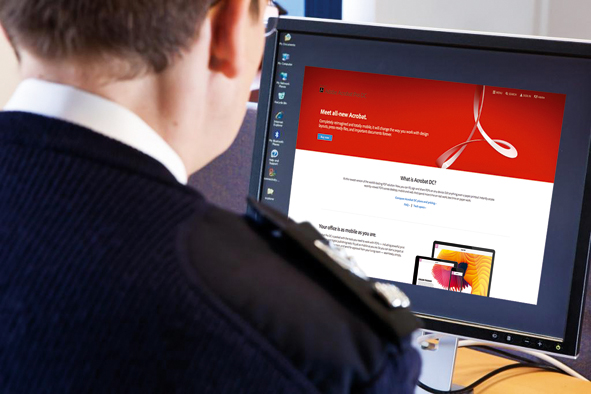BWV cameras rolled out to all frontline officers
Staffordshire Police is to make 530 body-worn video (BWV) cameras available to frontline officers enough for every police officer, police community support officer (PCSO) and Special Constable on duty at any one time.

It makes the force one of the first in Europe to issue BWV cameras to all frontline officers.
The cameras have now been rolled out to officers across Staffordshire and Stoke-on-Trent following a successful pilot by the Newcastle-under-Lyme local policing team.
Staffordshires police and crime commissioner (PCC) Matthew Ellis is the driving force behind the £300,000 programme.
He commissioned the cameras as part of a major investment in new technology that will see officers provided with the right tools to do their job.
This is part of a major technology plan to free-up officer time and create thousands of extra hours of visible policing, said Mr Ellis.
Body cams will revolutionise evidence gathering and help ensure complaints are dealt with more efficiently and cost effectively.
They are part of rigorous efforts to ensure everything thats done is open, honest and transparent so that public confidence across policing and criminal justice is improved. The advantage of having these cameras is that they start to remove any doubts as to what happened because its caught on film, ensuring openness and transparency in policing.
They will help officers get the best possible evidence, they will protect people who are being arrested and will save a vast amount of time by providing actual pictorial evidence in court rather than thousands and thousands of words.
Staffordshire Police says not only does BWV provide vital visual evidence in key investigations and improve transparency when dealing with the public, it also acts as a deterrent when dealing with offenders and can be invaluable in instances where there are complaints against officers.
The cameras will also lead to efficiencies and savings at court through the use of video evidence.
They allow officers to record high-definition video and audio at crime scenes, including low-light situations, which can then be played directly in court as evidence.
Chief Constable Mike Cunningham said: Our officers have welcomed the introduction of BWV and are able to use this equipment to help them deliver an outstanding service to victims of crime in Staffordshire.
It means we are able capture video evidence from our arrival at an incident, and these videos show an accurate record of what has happened.
Courts are now be able see first-hand exactly what an offence looked like on the particular day in question, which ultimately means better support for victims and improves our ability to bring offenders to justice.
Specialist officers in tactical roles, such as road crime and the dog unit, will be receiving BWV cameras in the final phase of the rollout.
The BWV programme is at the centre of the PCCs Safer, Fairer, United Communities strategy which is about investing now to save money later and free-up officer time.
It will also contribute towards Staffordshire becoming the most technologically advanced force in the country, said Mr Ellis.
Earlier this year, the Home Secretary approved £1.4 million funding to six forces the Metropolitan Police Service, Hampshire Constabulary, Leicestershire Police, Durham Constabulary, Thames Valley Police and Gwent Police to increase the use of BWV. The money was awarded through the Governments precursor fund of £20 million that was made available to PCCs ahead of the first full year of operation of its Police Innovation Fund that will be worth up to £50 million a year from 2014/15.


